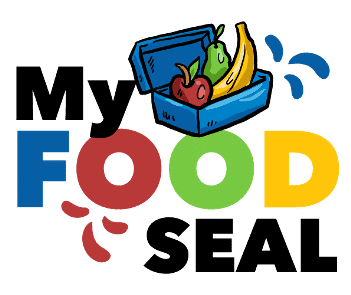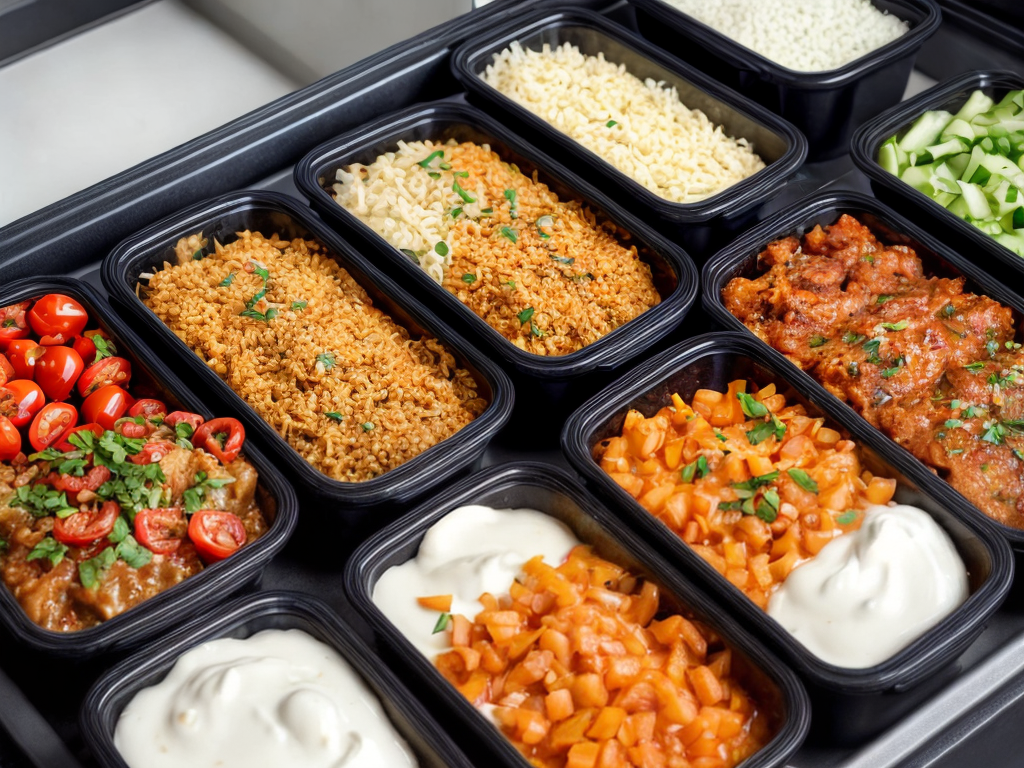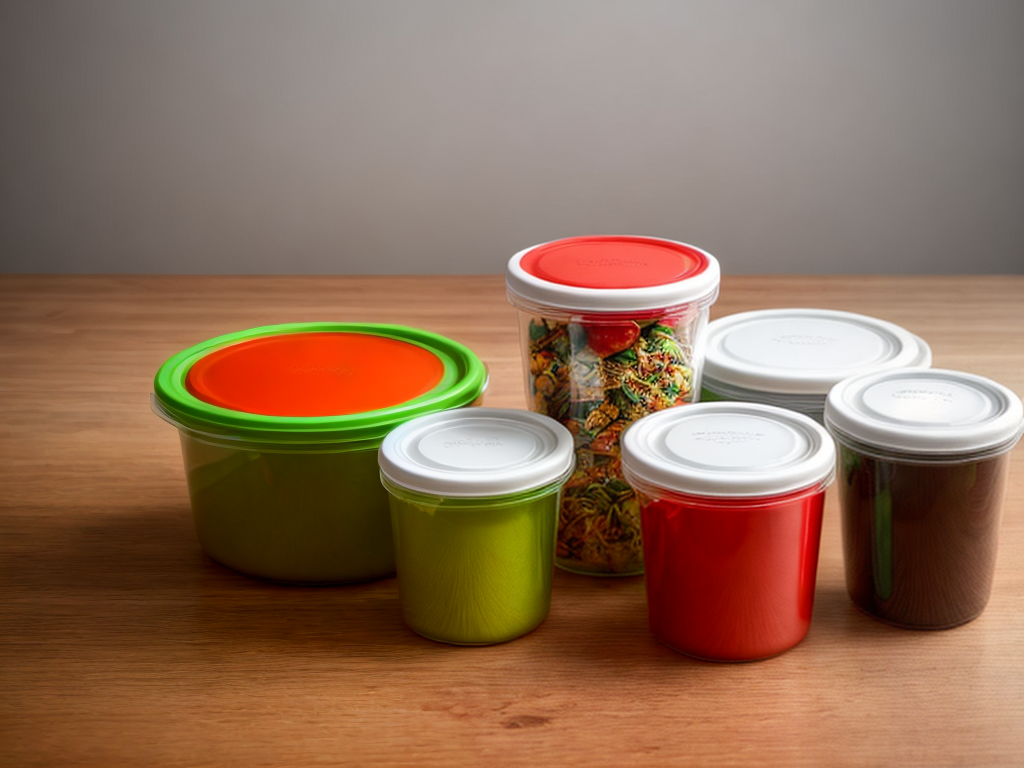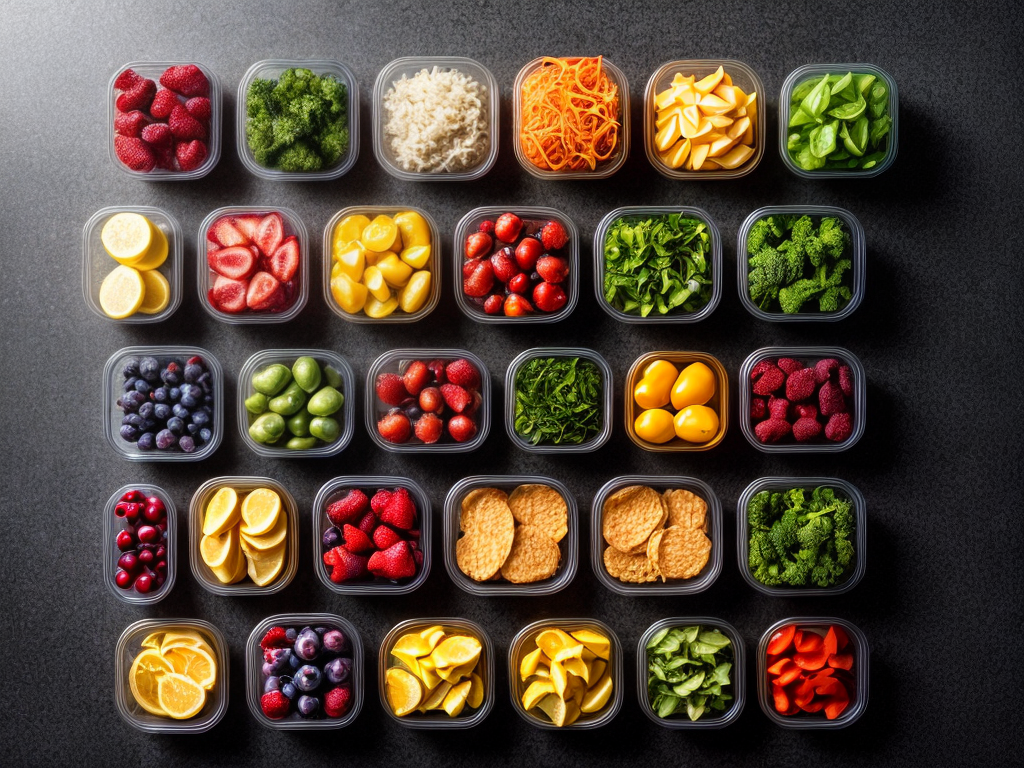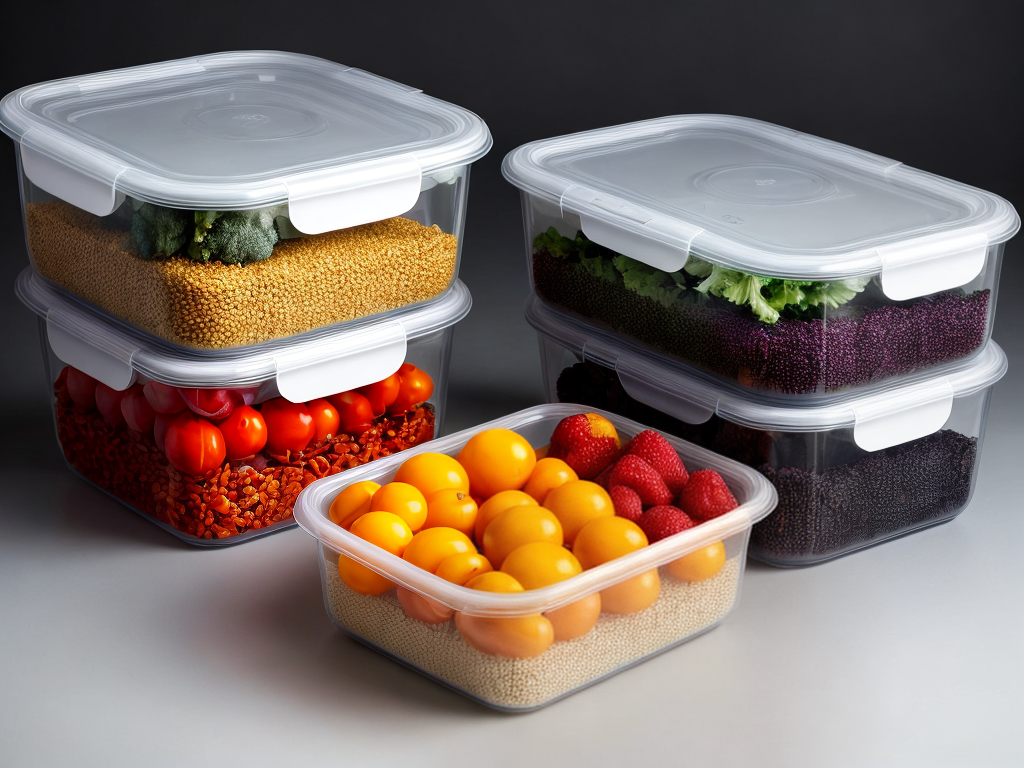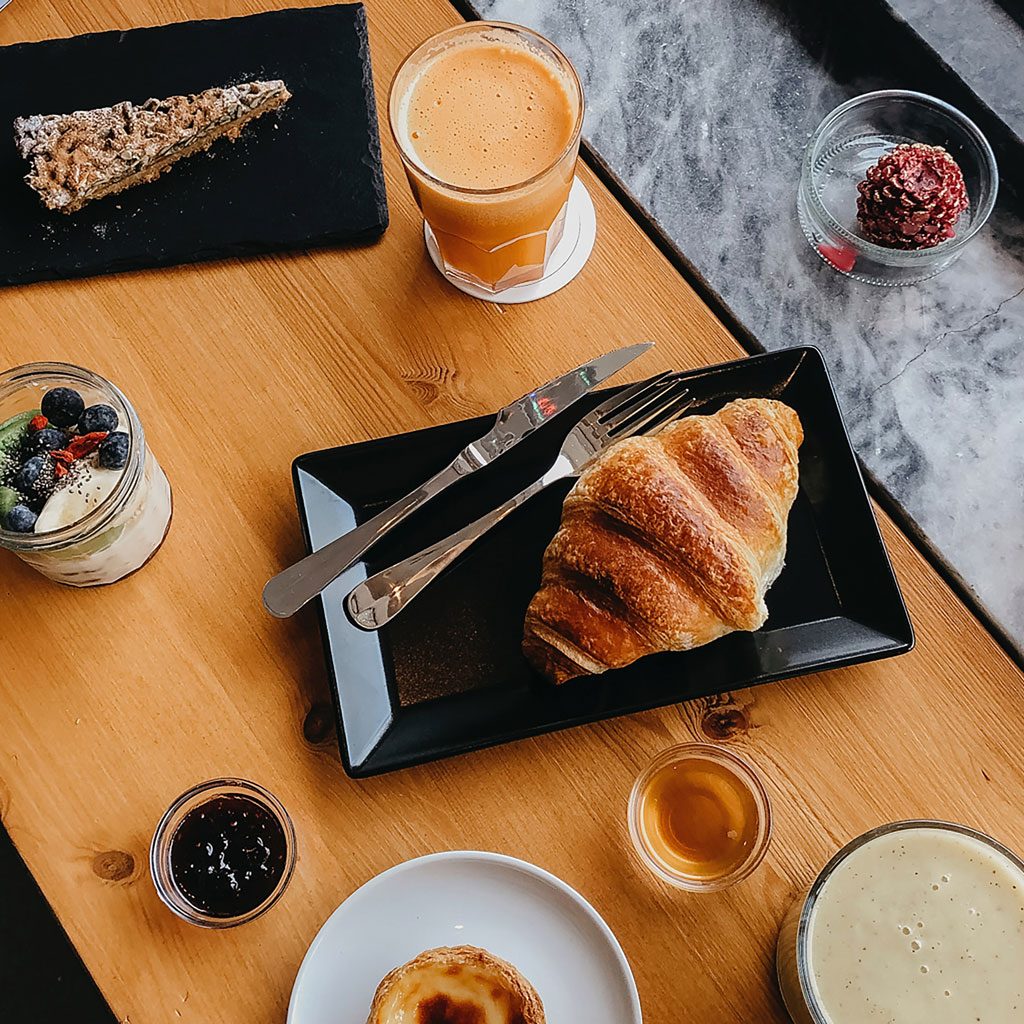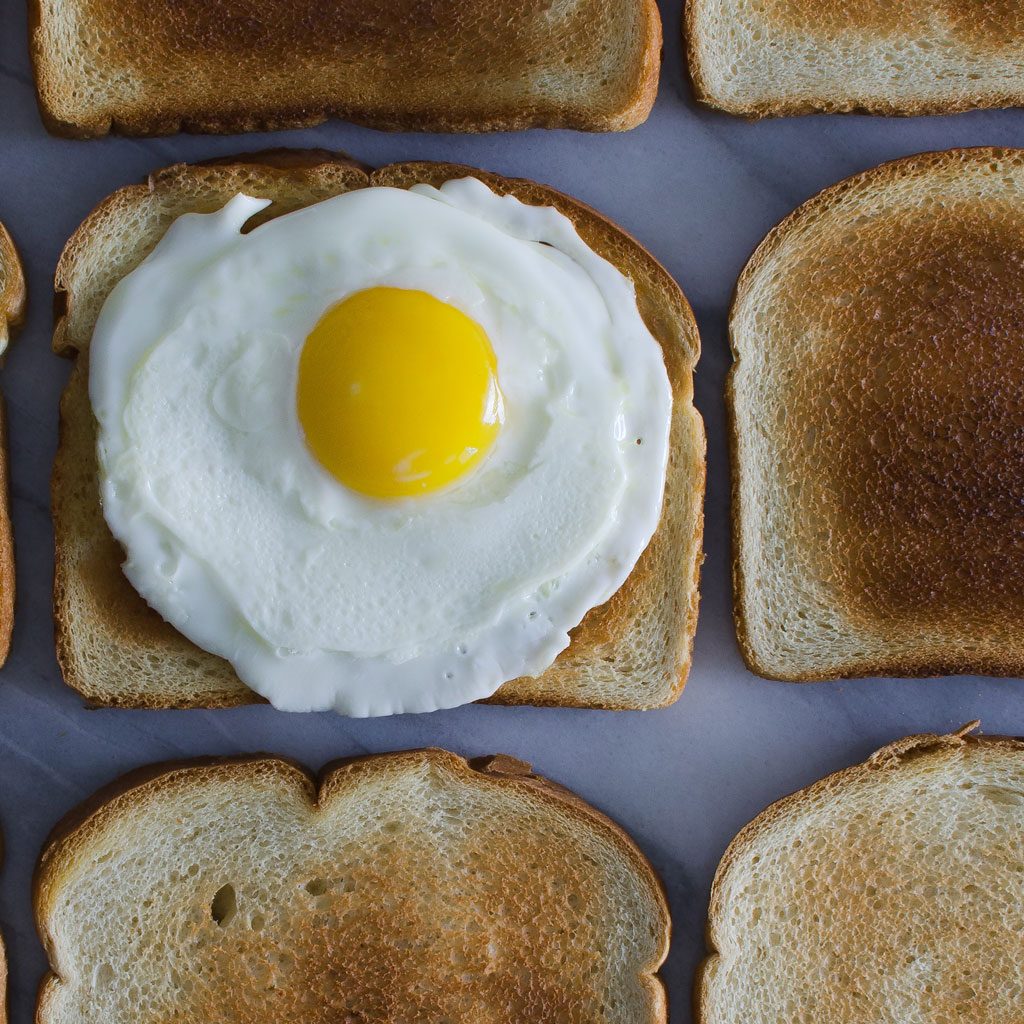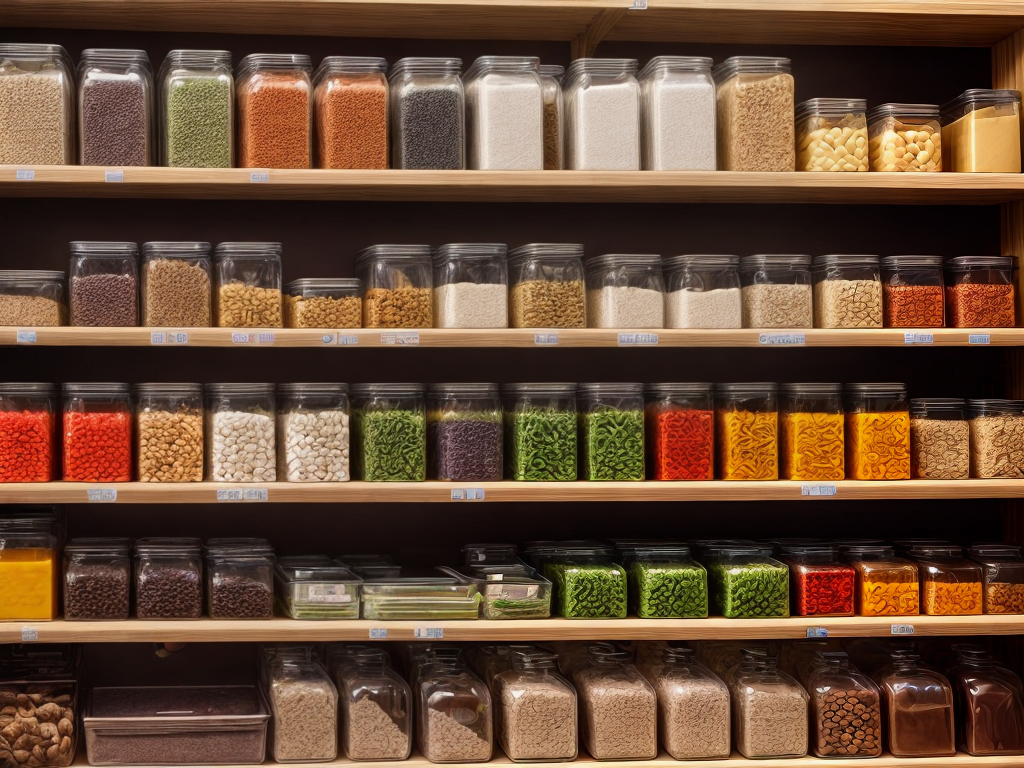
As I open the pantry door, the sight of neatly lined jars filled with colorful grains, beans, and dried fruits brings a sense of satisfaction and preparedness. Storing bulk foods is not just about saving money, but also about being ready for any situation. In this discussion, I will share tips and tricks for proper storage containers, organizing your pantry, understanding shelf life and expiration dates, keeping out pests and moisture, as well as freezing and vacuum sealing techniques. So, let’s dive into the world of bulk food storage, where preparedness meets practicality.
Proper Storage Containers
When it comes to bulk food storage, using the right containers is crucial for maintaining freshness and organization. Airtight containers are the best option for preserving the quality of your stored food items. These containers create a seal that prevents air and moisture from entering, keeping your food fresh for longer periods. By keeping the air out, airtight containers also help to reduce the risk of contamination and pests.
There are various reusable options available for bulk food storage. Glass containers are a popular choice due to their durability and non-reactive properties. They are also transparent, allowing you to easily identify the contents inside. Plastic containers, made from BPA-free materials, are another affordable and lightweight option. Look for containers with tight-fitting lids to ensure a secure seal.
In addition to airtight containers, consider using stackable containers to maximize the space in your pantry. This will help keep your pantry organized and make it easier to locate specific items when needed. Labeling your containers can also aid in maintaining an organized pantry.
Organizing Your Pantry
To effectively organize your pantry, start by categorizing your food items. This will help you locate items easily and make the most of your pantry space. Here are some pantry organization and space-saving tips to help you get started:
- Use clear containers: Transferring your bulk foods into clear containers not only helps you see what you have at a glance, but also keeps them fresh for longer by preventing exposure to air and moisture.
- Label everything: Make sure to label your containers with the name of the food item and the expiration date. This will help you keep track of what you have and ensure that you use items before they expire.
- Utilize vertical space: Install shelves or use stackable storage solutions to maximize the vertical space in your pantry. This will allow you to store more items and keep them easily accessible.
- Create zones: Group similar items together, such as baking supplies, canned goods, and snacks. This will make it easier to find what you need and prevent clutter.
- Use door storage: Take advantage of the space on the inside of your pantry door by installing racks or hooks. This is a great place to store small items like spices or snacks.
Shelf Life and Expiration Dates
When it comes to bulk food storage, understanding the importance of expiration dates and how to extend the shelf life of your food is crucial. Knowing when your food expires ensures that you consume it before it goes bad, reducing the risk of foodborne illnesses. Additionally, learning how to extend the shelf life of your food can help you save money and reduce food waste.
Expiration Date Importance
Why is the expiration date important for food storage? Well, let me tell you. Here are five reasons why paying attention to expiration dates is crucial for maintaining the quality and safety of your stored bulk foods:
- Safety: Expiration dates indicate the point at which a food may no longer be safe to consume, helping you avoid potential foodborne illnesses.
- Quality: Foods past their expiration dates may experience changes in taste, texture, and nutritional value, compromising their overall quality.
- Nutrient content: Over time, the nutrient content of foods can degrade, making them less nutritious than when they were fresh.
- Shelf life: Expiration dates provide a guideline for how long a product can be stored before it starts to deteriorate.
- Rotation: Monitoring expiration dates enables you to rotate your stock, ensuring that older items are used first and reducing waste.
Extending Shelf Life
Extending the shelf life of your bulk foods can save you money and reduce food waste. By following proper storage techniques and utilizing certain preservation methods, you can maximize the freshness of your food and minimize spoilage. Here are some tips to help you extend the shelf life of your bulk foods:
| Method | Benefits | Tips |
|---|---|---|
| Proper packaging | Maintains freshness | Use airtight containers or resealable bags to prevent exposure to air and moisture. |
| Temperature control | Slows down spoilage | Store foods in cool, dry places away from sunlight and heat sources. |
| Rotation system | Ensures consumption order | Practice first-in, first-out (FIFO) to use older items before newer ones. |
Keeping Out Pests and Moisture
To effectively keep pests and moisture out of your bulk food storage, implement these simple tips:
-
Proper Sealing: Use airtight containers or bags to prevent pests and moisture from entering. Opt for containers with tight-fitting lids and sealable bags with zip locks.
-
Regular Cleaning: Keep your storage area clean and free from crumbs or spills that can attract pests. Regularly wipe down shelves and containers to remove any moisture or food residue.
-
Temperature Control: Maintain a cool and dry environment to discourage pests and prevent moisture buildup. Store your bulk foods in a cool pantry or basement, away from direct sunlight or heat sources.
-
Use Desiccants: Place moisture-absorbing packets or silica gel packs in your storage containers to help control moisture levels. These can be purchased or easily made at home using salt or rice.
-
Inspect Regularly: Check your bulk food storage periodically for signs of pests or moisture damage. Look for any holes in containers, chew marks, or signs of mold. If you notice any issues, take immediate action to prevent further damage.
Freezing and Vacuum Sealing
When it comes to bulk food storage, proper packaging techniques are crucial. Freezing is a popular method that helps preserve the quality and nutrients of food for a longer period of time. Vacuum sealing, on the other hand, offers additional benefits by removing air and creating an airtight seal, preventing freezer burn and extending the shelf life of the food.
Proper Packaging Techniques
For efficient storage, consider utilizing freezing and vacuum sealing techniques to properly package your bulk food items. Here are some tips to help you with proper packaging:
- Invest in quality packaging supplies: Use sturdy freezer bags or containers that are specifically designed for freezing food.
- Label everything: Clearly mark each package with the contents and date of freezing to ensure proper rotation.
- Remove excess air: When using freezer bags, squeeze out as much air as possible before sealing to prevent freezer burn.
- Portion control: Divide bulk items into smaller portions before freezing to make it easier to thaw only what you need.
- Vacuum sealing: If you have a vacuum sealer, use it to remove all air from the packaging, extending the shelf life of your bulk food.
Benefits of Freezing
There are several benefits to freezing bulk food items, including the ability to extend their shelf life and maintain their quality. Freezing is a popular method of preserving food because it slows down the growth of bacteria, yeast, and molds that cause spoilage. It is an efficient way to store large quantities of food without worrying about them going bad. Additionally, freezing can help retain the nutritional value of the food and prevent the loss of vitamins and minerals. Blanching before freezing, which involves briefly boiling the food and then cooling it, helps to preserve its color, texture, and flavor. This process also helps to remove any dirt or bacteria on the surface of the food. When freezing bulk foods, it is important to use proper packaging techniques to prevent freezer burn and maintain the quality of the food.
Vacuum Sealing Advantages
One advantage of vacuum sealing when freezing bulk food items is the ability to significantly extend their shelf life. Vacuum sealing for freshness offers several advantages:
- Preservation: Vacuum sealing removes air from the packaging, preventing the growth of bacteria, mold, and yeast, which can lead to spoilage.
- Retention of nutrients: Vacuum sealing helps preserve the nutritional value of the food by minimizing exposure to oxygen and moisture, which can degrade vitamins and minerals.
- Prevention of freezer burn: Vacuum-sealed bags create a tight seal that protects food from freezer burn, ensuring its quality and taste.
- Space-saving: Vacuum-sealed packages are compact and stackable, optimizing storage space in your freezer.
- Long-term storage: Vacuum sealing allows you to store bulk food items for an extended period, maintaining their freshness and flavor until you’re ready to use them.
Rotation and First-In, First-Out Method
To ensure freshness and prevent food waste, implementing a rotation system and utilizing the first-in, first-out method is essential for effective bulk food storage. Rotation management involves regularly checking and organizing your inventory to ensure that older items are used before newer ones. This helps to maintain the quality and shelf life of your bulk foods.
One way to implement rotation management is by using inventory tracking. Keep a record of the dates when items are purchased or received and use this information to determine which items should be used first. Label your bulk food containers with the purchase or expiration dates to make it easier to identify which ones need to be used first.
When restocking your pantry or storage area, place the new items behind the older ones. This ensures that the older items are used first, reducing the chance of spoilage or waste. By following the first-in, first-out method, you can maintain the freshness of your bulk foods and minimize the risk of consuming expired or spoiled items.
Regularly check your inventory and rotate your stock accordingly. This will help you stay organized and ensure that your bulk foods are used before they expire. By implementing a rotation system and using the first-in, first-out method, you can maximize the shelf life of your bulk foods and minimize food waste.
Conclusion
In conclusion, properly storing bulk foods is essential for maintaining their quality and freshness. By using suitable storage containers, organizing your pantry, and keeping track of expiration dates, you can ensure that your food stays in good condition for longer periods of time. Additionally, taking steps to keep out pests and moisture, as well as utilizing freezing and vacuum sealing techniques, will further extend the shelf life of your bulk foods. Lastly, implementing a rotation system will help you adhere to the first-in, first-out method and avoid wasting any food.
